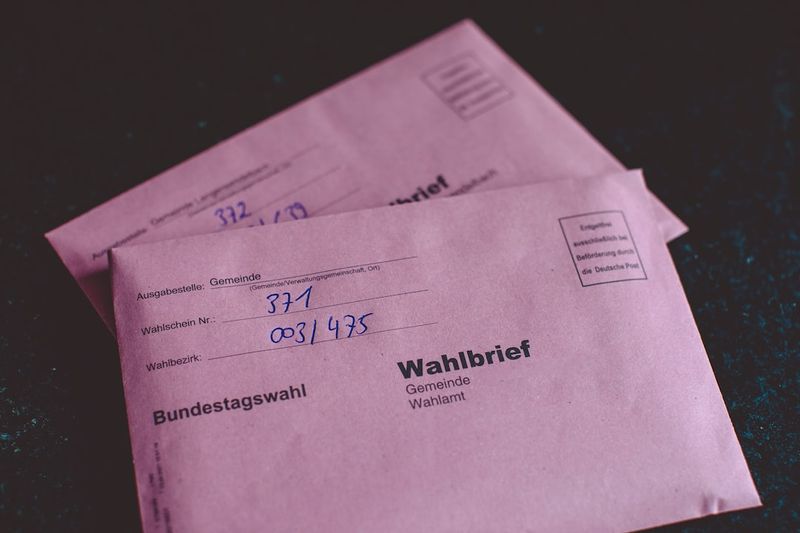*Campaigners Hit the Hustings as Yes and No Sides Make Their Case*
Early voting for the Indigenous voice to parliament referendum has begun across Australia, with campaigners from both the yes and no campaigns taking to the streets to make their case. The referendum seeks to enshrine an Indigenous advisory body in the constitution, and stakeholders have less than two weeks left to persuade voters before the October 14th deadline. Early voting has already commenced in the Northern Territory, Tasmania, Victoria, and Western Australia, with other states to follow suit on Tuesday.
**The Importance of One-on-One Conversations**
Prime Minister Anthony Albanese remains optimistic that the voice will prevail, even though published polls have shown poor standings for the yes side. He believes that undecided voters may still cast their votes in favor of the Indigenous advisory body after engaging in one-on-one conversations. “The key to the next fortnight is those one-on-one conversations with people to accept this request of the overwhelming majority of Aboriginal and Torres Strait Islander people,” he told reporters in Melbourne on Monday.
Dean Parkin, the director of the Yes23 campaign, echoes Albanese’s sentiment and sees the next 12 days as crucial for engaging with undecided voters. He believes that Australians tend to focus on decision-making closer to the vote, providing ample time for discussions about the referendum. Parkin emphasizes that the choice is clear: a yes vote would provide real recognition and the opportunity for practical change, whereas a no vote would yield nothing.
**The No Campaign’s Focus on Western Australia**
While the yes campaign targets Victoria as a “must-win” state, the no campaign has decided to focus its efforts on Western Australia. Analysts expect a majority of Western Australians to vote against the voice, and opponents are working hard to consolidate support in the region. Jacinta Nampijinpa Price, the prominent no campaigner and opposition Indigenous Australians spokesperson, was in Perth for an event to rally support.
**The Role of Queensland, WA, and Swing States**
Published polls indicate that Queensland and Western Australia are likely to vote no, while Tasmania is expected to vote yes. The referendum‘s fate will likely hinge on the votes in South Australia, Victoria, and New South Wales. With South Australia considered a swing state, it becomes crucial for both sides to secure support from voters in Victoria and New South Wales to ensure the success of the Indigenous voice.
**Advocating for Awareness**
David Littleproud, the leader of the Nationals, emphasized the importance of raising awareness about the referendum in remote and regional communities. He acknowledged that many residents may not be fully aware of the significance of the vote and encouraged the Australian Electoral Commission (AEC) to exert efforts in educating the public. The AEC has already started conducting voting in remote locations, and the referendum has the largest number of eligible Australians on the electoral roll. To find an early polling location, people can use the AEC tool.
**Ensuring Participation**
With 97.7% of eligible Australians enrolled to vote and Indigenous enrollment at a high of 94.1%, the AEC is urging Australians to ensure they are able to cast their ballots on October 14th. Those who cannot participate on the designated date are encouraged to consider early voting options.
*By *
*Opinion: Empowering Indigenous Voices for a Stronger Australia*
Empowering Indigenous Voices for a Stronger Australia
The Indigenous voice to parliament referendum presents a critical opportunity for Australia to take significant strides towards reconciliation, representation, and justice. Enshrining an Indigenous advisory body in the constitution would be a historic step in recognizing the unique perspectives and priorities of Aboriginal and Torres Strait Islander people.
The yes campaign’s emphasis on engaging voters through one-on-one conversations is a commendable and necessary approach. It allows for a deep understanding of the intricacies and potential of the Indigenous voice. Conversations that center around the overwhelming majority of Indigenous Australians who support this request are crucial to dispelling any doubts or misconceptions that may exist.
Challenges and Regional Efforts
The no campaign’s focus on Western Australia reflects the challenges faced by those who oppose the Indigenous advisory body. Western Australia is home to a diverse population with differing views and experiences. It is important for no campaigners to address the concerns and fears that may underpin opposition, while also acknowledging the necessity of Indigenous representation and the potential for positive change.
The significance of swing states, particularly South Australia, cannot be underestimated. These states hold the potential to shape the outcome of the referendum. It is imperative for supporters of the Indigenous voice to engage with voters in South Australia, Victoria, and New South Wales, highlighting the importance of acknowledging the rights and aspirations of Aboriginal and Torres Strait Islander peoples.
Increasing Awareness and Engagement
The call for the Australian Electoral Commission to raise awareness about the referendum in remote and regional communities is paramount. Ensuring that all Australians, regardless of their location, fully understand the significance of the Indigenous voice is vital for a truly representative and inclusive democracy.
Educational initiatives, public forums, and community engagement programs can play a crucial role in dispelling misconceptions and building support for the referendum. By providing accurate information and creating a space for open dialogue, Australians can have the opportunity to make an informed decision that aligns with the values of justice, equality, and reconciliation.
Casting a Vote for a Better Future
The upcoming referendum is not only a momentous occasion for Indigenous Australians but for the entire nation. It symbolizes a collective commitment to rectifying historical injustices and creating a more inclusive society.
As Australians, we have the responsibility to cast our vote in favor of empowering Indigenous voices. By recognizing the value of diverse perspectives and working towards a more equitable and representative democracy, we pave the way for a stronger and more united Australia.
Let us seize this opportunity to stand together in support of the Indigenous voice to parliament and embark on a path towards a brighter future that is guided by justice, reconciliation, and mutual respect.
*The views expressed in this editorial are solely those of the author, , and do not reflect the opinions of The New York Times or its affiliates.*

<< photo by Markus Spiske >>
The image is for illustrative purposes only and does not depict the actual situation.
You might want to read !
- “Voice to Parliament: Noel Pearson Shuts Down No Case Claims as Vote Looms”
- “Indigenous Voice to Parliament: Referendum Date Finally Set for National Consultation”
- Referendum Plan Secures Senate Approval, Ensuring the Establishment of Voice to Parliament
- Why Daylight Saving is a Waste of Time | The Australian
- 1. “Time for a Change: Reconsidering the Relevance of Daylight Saving in Australia”
- Opinion: Noel Pearson emphasizes significance of Indigenous voice in healing the nation’s heart.
- Voice referendum: The crucial dates for postal and early voting in Australia
- “Rethinking Democracy: Postal and Early Voting Timelines for Voice Referendum Revealed”
- Fury in the Flames: Rebuilding Resilience in the Wake of Victoria’s Devastating Fires
- Heroes in Action: Bystanders Brave Bloodshed to Save Woman
- “Paradise Lost: The Heartbreaking Farewell of the Saunders Family”
- Tamika Upton’s Late Heroics Secure NRLW Grand Final Triumph for the Knights
- Las Vegas Sphere wows U2 fans with first-ever concert extravaganza




